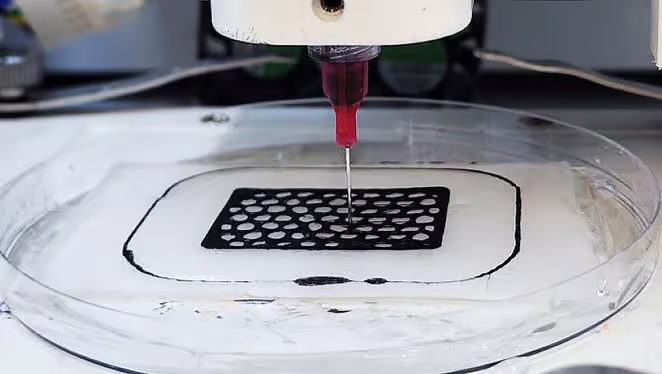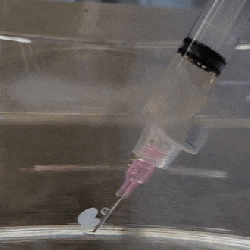
Researchers demonstrate sustainable 3D printing by using poly(N-isopropylacrylamide) solutions (PNIPAM), which speedily and reliably turn solid by undergoing a rapid phase change when in a salt solution.
 This property has been used to 3D print objects by using a syringe tip as if it were a nozzle in a filament-based printer. As long as the liquid is being printed into contact with a salt solution, the result is a polymer that solidifies upon leaving the syringe.
This property has been used to 3D print objects by using a syringe tip as if it were a nozzle in a filament-based printer. As long as the liquid is being printed into contact with a salt solution, the result is a polymer that solidifies upon leaving the syringe.What’s also interesting is that the process by which the PNIPAM-based solutions solidify is entirely reversible. Researchers demonstrate printing, breaking down, then re-printing, which is an awfully neat trick. Finally, by mixing different additives in with PNIPAM, one can obtain different properties in the final product. For example, researchers demonstrate making conductive prints by adding carbon nanotubes.
While we’ve seen the concept of printing with liquids by extruding them into a gel bath or similar approach, we haven’t seen a process that prides itself on being so reversible before. The research paper with all the details is available here, so check it out for all the details.
